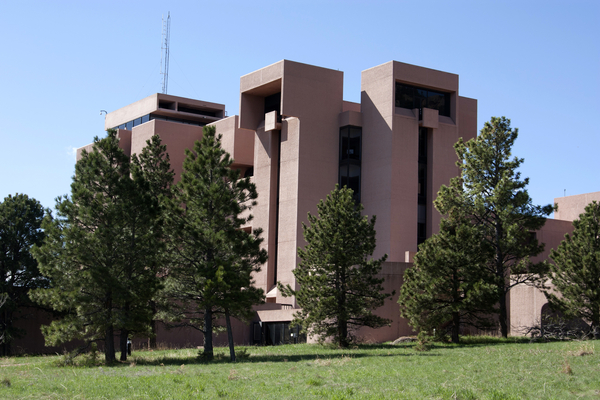| Thursday November 9th, 2023 |
| 8:30 - 8:40 |
OPENING REMARKS |
|
| 8:40 - 9:40 |
KEYNOTE: Models, Data, and Wisdom: How do we know when to trust a climate model? slides |
Steve Easterbrook
School of the Environment and Department of Computer Science, University of Toronto
|
| 9:40 - 10:00 |
TALK: Component Level Regression Testing in a Hierarchical Architecture. slides |
Thomas Clune
NASA Goddard Space Flight Center
|
| 10:00 - 10:20 |
TALK: High Performance Climate and Weather Benchmark (HPCW): a framework for reproducible benchmarks of ESM models and mini-applications. slides |
David Guibert
Center for Excellence in Performance Programming, Eviden
|
| 10:20 - 10:50 |
BREAK |
|
| 10:50 - 11:10 |
TALK: Correctness Challenges in HPC and ML. slides |
Harvey Dam, Ganesh Gopalakrishnan
Department of Computer Science, University of Utah
|
| 11:10 - 11:30 |
TALK: Reliable and reproducible Earth System Model data analysis with ESMValTool. slides |
Valeriu Predoi*
NCAS-CMS, University of Reading
|
| 11:30 - 11:50 |
TALK: Testing approach for porting legacy 4-mode Modal Aerosol Model (MAM4) to C++/Kokkos. slides |
Balwinder Singh
Atmospheric Sciences and Global Change Division, Pacific Northwest National Laboratory
|
| 11:50 - 12:10 |
TALK: Verification of the ICON model with the GT4Py dycore - challenges and insights. slides |
Abishek Gopal*
Institute for Atmospheric and Climate Science, ETH Zurich
|
| 12:10 - 1:10 |
LUNCH |
Mesa Lab Cafeteria
Included with Registration
|
| 1:10 - 2:10 |
KEYNOTE: Earth system models of the future. slides |
Peter Dueben*
Earth System Modelling Section, European Centre for Medium Range Weather Forecasts (ECMWF)
|
| 2:10 - 2:30 |
TALK: A Theory of Scientific Programming Efficacy. slides |
Michael Coblenz
Department of Computer Science, UC San Diego
|
| 2:30 - 2:50 |
TALK: An overview of the MOM6 development cycle. slides |
Marshall Ward*
Geophysical Fluid Dynamics Lab, NOAA
|
| 2:50 - 3:20 |
BREAK |
|
| 3:20 - 3:40 |
TALK: Challenges in Ensuring Reproducibility for Machine Learning Weather Model Training and Deployment. slides |
David John Gagne
Computational and Information Systems Lab, NCAR
|
| 3:40 - 4:00 |
TALK: METplus: The Long and Winding Road to Unified Verification. slides |
Tara Jensen*
Research Applications Lab, NCAR
|
| 4:00 - 4:20 |
TALK: Unit Testing NCEPLIBS. slides |
Edward Hartnett
CIRES/NOAA
|
| 4:20 - 5:00 |
OPEN DISCUSSION |
|
| Friday November 10th, 2023 |
| 8:30 - 9:30 |
KEYNOTE: Lightweight Formal Methods: The What, Why, and How. slides |
John Baugh*
Civil Engineering and Operations Research, North Carolina State University
|
| 9:30 - 9:50 |
TALK: What could the next 30 years of software verification in climate science look like?. slides |
Dominic Orchard*
Department of Computer Science and Technology, University of Cambridge and School of Computing, University of Kent
|
| 9:50 - 10:10 |
TALK: Parallel reproducibility of the SHYFEM-MPI model. slides |
Francesco Carere*
Euro Mediterranean Center on Climate Change Foundation (CMCC Foundation)
|
| 10:10 - 10:40 |
BREAK |
|
| 10:40 - 11:40 |
KEYNOTE: Contained Chaos: Quality Assurance for the Community Earth System Model. slides |
Dorit Hammerling
Applied Mathematics and Statistics, Colorado School of Mines
|
| 11:40 - 12:00 |
TALK: Methods and Tools for the Application of UF-ECT to New Climate Models. slides |
Teo Price-Broncucia
Department of Computer Science University of Colorado Boulder
|
| 12:00 - 12:20 |
TALK: Ensure the correctness and reproducibility in UFS Weather Model CI. slides |
Jun Wang
NOAA NWS/EMC
|
| 12:20 - 1:20 |
LUNCH |
Mesa Lab Cafeteria
Included with Registration
|
| 1:20 - 1:40 |
TALK: Towards Ensuring Statistical Climate Reproducibility of Earth System Models in the Exascale Age. slides |
Salil Mahajin
Computational Earth Sciences Group, Oakridge National Laboratory
|
| 1:40 - 2:00 |
TALK: Improvements in Reproducibility Testing Through False Discovery Rate Correction. slides |
Michael Kelleher
Computational Earth Sciences Group, Oakridge National Laboratory
|
| 2:00 - 3:30 |
PANEL: Correctness and verification across platforms
Panelists:
- Ilene Carpenter, Hewlett Packard Enterprise
- Karsten Peters-von Gehlen, Deutsches Klimarechenzentrum GmbH (DKRZ)
- Ganesh Gopalakrishnan, University of Utah
- Aaron Donahue, Livermore National Laboratory
Moderator: Brian Dobbins, NCAR
|
|
| 3:30 - 4:00 |
BREAK |
|
| 4:00 - 5:00 |
CLOSING DISCUSSION |
|

